India's think tank sets agenda to get country back on track
Updated: Jun 11, 2014 04:48:03pm
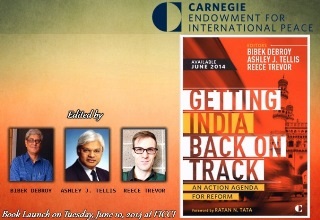
The policy prescriptions in almost every sector of the Indian economy are contained in a book titled 'Getting India Back of Track: An Action Agenda for Reform' launched at Federation House yesterday, according to a FICCI release.
Edited by Professor, Centre for Policy Research, Bibek Debroy, Senior Associate, Carnegie Endowment for International Peace, Ashley J Tellis, and Research Assistant in the South Asia Programme at the Carnegie Endowment, Reece Trevor, the recommendations of the authors merit serious reflection by the government to reverse the trend of falling growth rates in the past decade and return the country to a high growth path.
During the launch, panel discussions on the subject were organized by FICCI and Carnegie Endowment for International Peace. In addition, FICCI and Carnegie Endowment for International Peace signed a MoU for further work and collaboration in areas of mutual interest.
The overall recommendations for the government held out by the authors are:
Recognise the imperative of growth: India must return to high rates of economic growth over a long period of time to correct its current developmental deficiencies. Policymakers should aim to sustain India's economic transformation over the secular period as they implement the next generation of reforms, which generally pertain to liberalizing factor markets (in contrast to a previous wave's focus on product markets).
Increase reliance on markets for efficient allocation: Policymakers should examine their long-standing assumption that state intervention is the best possible instrument for making allocation decisions in the economy. Wherever possible, private goods should be produced and distributed principally through market mechanisms. State resources should be utilized mainly for producing collective goods or those private goods that are hard to produce through the market because of misaligned incentives.
Rebuild state capacity: Reforms should increase the state's currently rather weak capacity to do what only governments can do — build institutions for effective rule-making, administration, and adjudication.
Shift the locus of reform from the center to the states: Decisions about economic and social policy in the future should be made at the lowest possible levels of competent authority, meaning India's states.
According to Ashley Tellis, the ravages of the socialist past are by now widely acknowledged, and a slow rollback of socialist policies has been under way since 1991. But the shift has been hesitant, conflicted and furtive rather than forthright and resolute. Going forward successfully will require diverse reforming actions, but above all a deep commitment to restoring the centrality of markets in economic decision-making and defending them doggedly in the face of the myriad temptations to distort them.
Reform, he said, requires momentum along three avenues simultaneously: reducing the role of the state in areas where it lacks advantage, such as the production of private goods; increasing the state's effectiveness through better administrative, regulatory, and adjudicative public institutions as well as more competent creation of tangible and intangible public goods; and improving the state's capacity for rational public policies by, among other things, subjecting them to market tests.
Bringing India back to high growth will be a complex task. The next wave of reforms pertains to liberalizing factor markets, building on the previous wave that focused on product markets. This will involve intricate technical issues, with the locus of action often shifting to the states.
Ila Patnaik, National Institute of Public Finance and Policy and Carnegie Endowment for International Peace, is of the view that people believe that a trend growth rate (of 8 per cent plus witnessed in the closing years 0f the past decade) will persist over a long period of time. They remain oblivious to the adverse effects of a business cycle. Emerging economies, she added, face business cycles and this had to be recognized and appreciated by policy makers.
Talking about regulatory bodies, Patnaik said legislation clearly needs to define the objectives and role of the regulator and provide them with the flexibility in decision-making. They must not get away with doing anything in 'public interest'. Additionally, the regulations should not be framed unilaterally but must be subjected to public discussion.
Bibek Debroy spoke of the urgent need for administrative reforms as most of the programmes and policies that are expected of the Centre fall under the ambit of States and local administration. In this context, he said the States must focus on sprucing up the administrative capacity at the lower rungs of the bureaucracy such as the Block Development Officers.
He said there was a case for rationalization of Central ministries and departments and a re-look at the responsibilities they have been asked to shoulder. Many of the services currently under the ambit of a ministry could be outsourced for more efficient deliver, he added.
In another panel discussion, speaking on food inflation, Ashok Gulati, Chair Professor for Agriculture, Indian Council for Research on International Economic Relations, said that there was a need to create front-end infrastructure and link it with the backend for vegetables and fruits. He added that an organized structured agriculture sector and creation of supply lines could help in reducing the loss of perishable goods, which stands at 25-30 per cent at present.
Gulati urged the government to unload the 15-20 million tonnes of agricultural produce in the open market. He also suggested that the government should do away with the heavy tariffs on imported meat and fruits. This would help in opening the market and reducing price fluctuations, which lead to skyrocketing of vegetables and fruit prices during the lean season.
Expressing his views on the issue of land acquisition, Barun Mitra, Founder and Director, Liberty Institute, said that the land acquisition Act does not allow the owners to leverage their assets. He suggested that land and environment regulations should be put under local issues instead of central and state list as only local bodies are well acquainted with the ground realities prevailing in the area.
Mitra said that there was a need to figure out a way to put land in the market domain where people are allowed to openly and freely deal with each other in the absence of any restrictions. The land regulations are creating artificial land scarcity. He added that presently the land transaction cost is very high which can be eliminated easing the way for both seller and buyer.
There was an urgent need to take back India's GDP growth to 7.5 per cent, which was languishing below 5 per cent for the last two years, said Omkar Goswami, Chairman, CERG Advisory. Besides agriculture, he said that manufacturing, mining and quarrying, construction, transport, storage, communication, education and health should be the focus areas for the government to leverage GDP growth. These sectors have been greatly neglected in the past and have shown dismal or negative figures both in terms of growth and employment generation.
Goswami said that the population growth was another area of great concern. By the year 2015, around 30 million people will be ready to enter the workforce, and this number will go down to 20-25 million by 2030. With a growth rate of 7.5 per cent, India will be able to narrow the employment and unemployment gap but it will not be enough. Hence, both the Centre and State governments will have to think of ways to diminish the gap. (KNN Bureau)

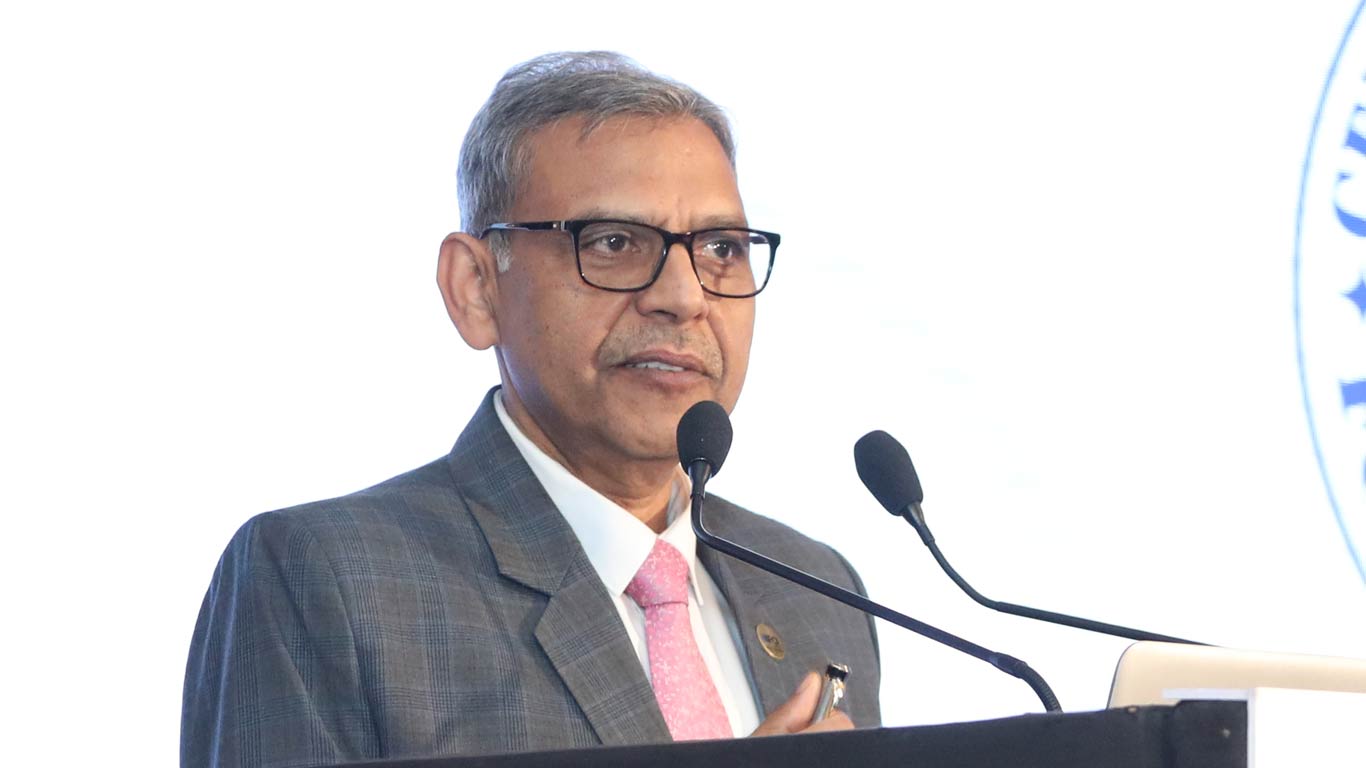
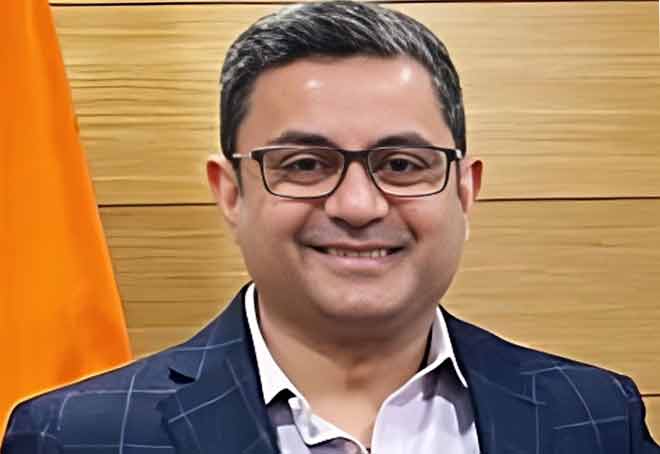

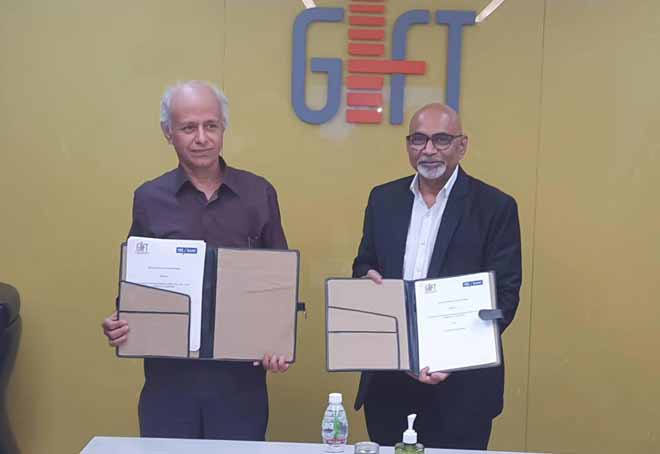
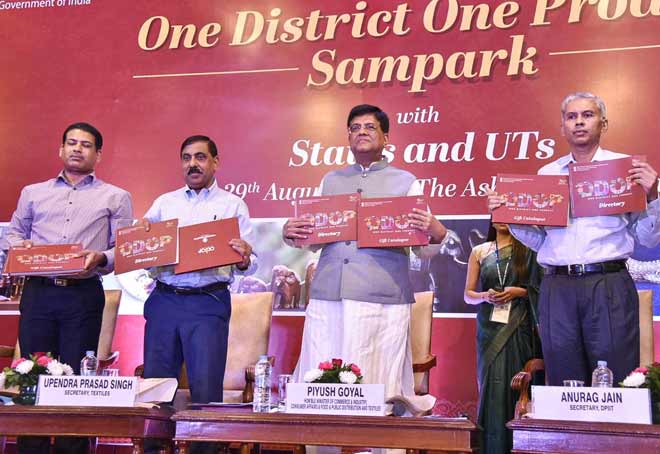





